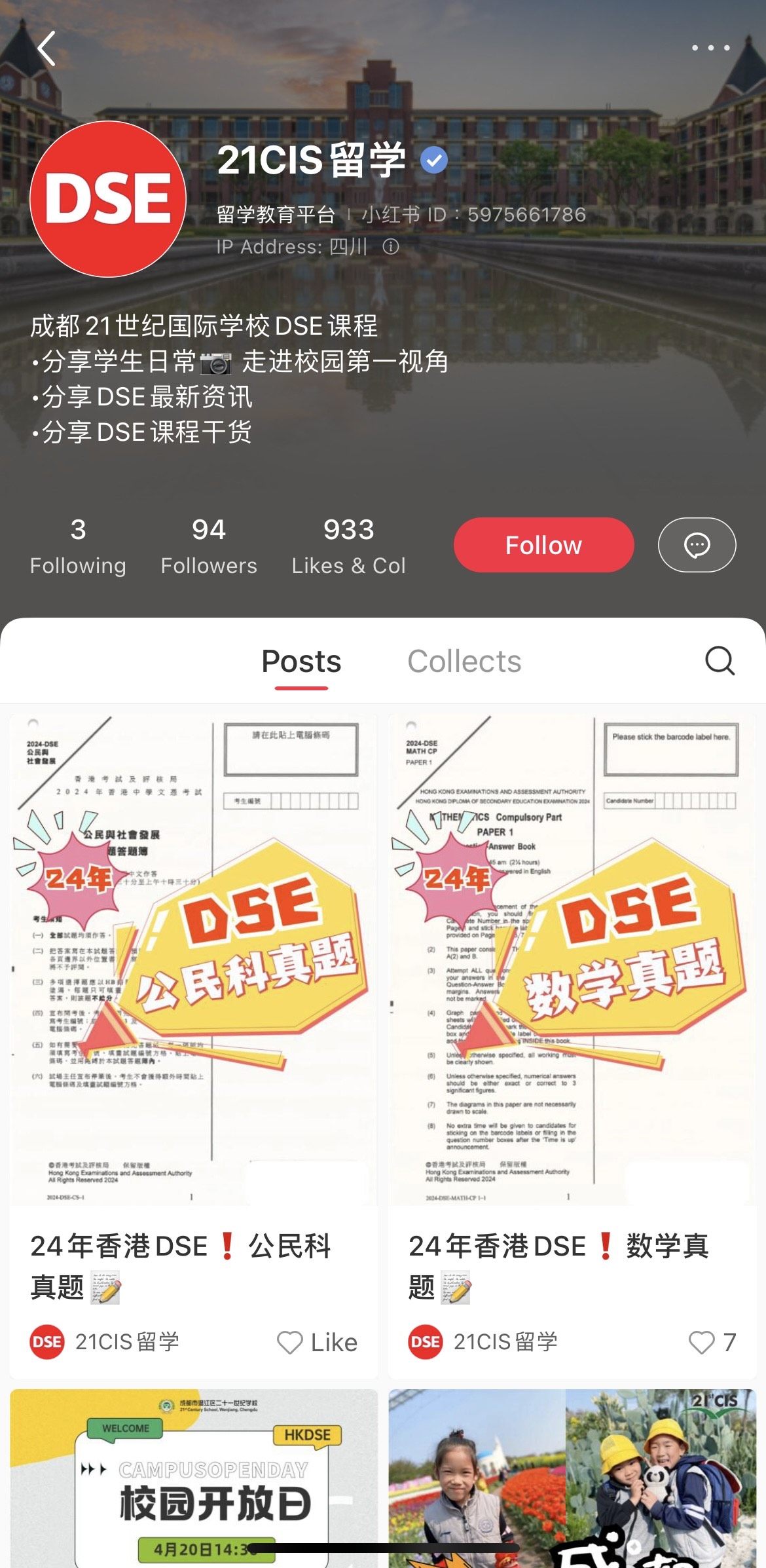
Hong Kong exams body pledges to file police report after more test content leaked on mainland China social media
- Post discovers Sichuan-based Xiaohongshu user posted exam booklets of this year’s mathematics as well as citizenship and social development tests
- Police earlier arrested woman surnamed Lau, 23, on suspicion of sharing test content on social media
The Post on Friday found that a Sichuan-based user on popular Chinese social media platform Xiaohongshu had posted the exam booklets of this year’s citizenship and social development, and mathematics tests.
“[The authority] will continue to stringently follow up on cases in which examination papers of the Hong Kong Diploma of Secondary Education Examination were posted on social media platforms,” the Hong Kong Examinations and Assessment Authority said.
“We will report cases suspected of having contravened the law to the police and fully cooperate with … the investigation.”
A source said the authority had already reported such cases to police and customs.
According to the Hong Kong Examinations and Assessment Authority Ordinance, all appointees of the authority, including Diploma of Secondary Education (DSE) examination personnel, should ensure secrecy while performing their duties.
Offenders can face a maximum penalty of six months imprisonment and a fine of HK$25,000 (US$3,190).

Police on Thursday arrested a 23-year-old woman, surnamed Lau, on suspicion of violating the ordinance.
Lau is suspected of uploading onto Xiaohongshu the question and answer book for this year’s English-language listening test taken on April 13, prompting the authority to complain to police on Tuesday.
An insider told the Post that she was one of the invigilators for the exams and also worked as a teaching assistant in a secondary school.
The exams authority said the incident had no impact on the test’s integrity as the leak occurred after it was conducted.
A Post check found another Xiaohongshu account had uploaded the exam papers for this year’s mathematics test on Thursday, as well as the citizenship and social development test on Friday.
Both papers were shared after the exams were held earlier this week.
In its profile bio, the account described itself as an international school in Chengdu that provides the latest on DSE curriculum.
DSE test leak: why sharing Hong Kong exam content online is illegal
Barrister Albert Luk Wai-hung said that if the user was based outside Hong Kong, the city’s police would not be able to make arrests, although mainland law enforcement could take action.
He said that if the person who posted the papers was an exam officer, he or she would breach the secrecy requirements under the ordinance.
If the user did not take part in the exams, he or she may face civil legal consequences by infringing the copyright laws in Hong Kong, as they did not seek approval to upload the papers from the authority, he added.
Luk said the government should ramp up public awareness to let mainlanders know that uploading the papers could lead to imprisonment and criminal records.
He warned that such behaviour could also lead to offences including misconduct in public office and conspiracy, if more than one public officer was involved. Exam invigilators are considered public officers.
Invigilator arrested over leak of Hong Kong exam content on social media
Technology lawyer Joshua Chu Kiu-wah, said that if the case involved criminal matters committed in Hong Kong, the secretary for justice could request the transfer of the suspect to the city under the Mutual Legal Assistance in Criminal Matters Ordinance, but it would depend on mainland authorities.
Mainland social media platforms could also employ artificial intelligence to identify and prevent the uploading of exam papers, he added.
Hans Yeung Wing-yu, a former history subject assessment development manager who worked at the authority for 15 years, said such leaks had “spun out of control” as he had also found many other Xiaohongshu users posting or reposting this year’s exam contents.
Someone was even selling exam papers on Alibaba Group’s Taobao, China’s largest online marketplace, he added. Alibaba owns the South China Morning Post.
He said this year was the first time the authority had established assessment centres on the mainland for about 110 pupils from two schools to sit the exams across the border.
“It has created a market. Many courses are teaching the DSE curriculum on the mainland, not only in Shenzhen and Guangzhou,” he said.
“If these two exam centres are deemed successful, there may be more centres set up in other mainland cities … this could lead to more leaks on other mainland platforms, not only Xiaohongshu.”
The practice of sharing exam papers after the tests was acceptable on the mainland, he added.
Yeung suggested authorities relax restrictions on sharing test content and publish the exam questions for free so that there would not be a need to leak them.

